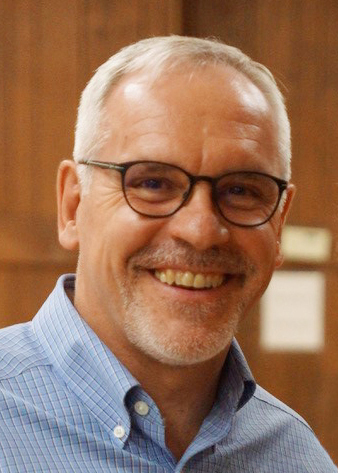Last week, Fairway Independent Mortgage Corporation announced the hiring of Tane Cabe as its new reverse business development manager with a focus on Home Equity Conversion Mortgage (HECM) for Purchase (H4P) business. In terms of other top 10 reverse mortgage lenders, Fairway stands out by making a concerted effort to cultivate more H4P business in an environment where many other reverse mortgage companies have spent much of the past 12-18 months focused on HECM-to-HECM (H2H) refinances, according to data compiled by Reverse Market Insight (RMI).
H4P is a major company initiative for Fairway, which hopes to increase its reverse for purchase volume in the short-term with hopes of transformation in the space over a 10-year period, and with a level of speed the lender claims is unmatched in the H4P arena compared to competitors. To get a better idea about how big a role H4P will play in Fairway’s plans, RMD sat down with its National Reverse Mortgage Director Harlan Accola and its National Reverse Sales Training Specialist Dan Hultquist to learn more about H4P’s importance to Fairway’s future plans.
Diagnosing low H4P uptake
According to data compiled by RMI, total share of H4P volume across the entire reverse mortgage industry made up only 4.2% of all endorsements in 2021. Because Fairway gets most of its reverse mortgage business from referral partnerships, extending to the purchase market made sense for Fairway because of the partnerships that its loan officer corps has spent so much time developing, according to Hultquist.
“Most of our loan originators have built referral partnerships over decades in some cases,” Hultquist says of Fairway’s LO corps. “And so, they know the local real estate agents. A lot of the business in our industry is generated through call centers, but call centers don’t have the ability to build relationships with local real estate professionals. Some of them have boots on the ground [and] feet on the street. But for the most part, we already have those relationships, so it’s natural for us.”
Since a lot of reverse mortgage business is generated using call centers, that creates a natural aversion for some real estate agents to even engage with the reverse mortgage category, Accola adds.
“Real estate agents hate dealing with call centers,” he says. “[They also] don’t like FHA loans, because now that creates the amendatory clause, and more inspections and stuff like that. So real estate agents automatically get nervous [about a HECM being] an FHA loan. And then, they get nervous if somebody is trying to do this loan from a phone room somewhere who doesn’t have as much skin in the game as somebody that’s in the community that they can see by going over to their office.”
As with many aspects of the reverse mortgage industry, it also comes down to general awareness, Hultquist adds. Not only are real estate agents largely unaware of the fact that the H4P program exists, but they are also underinformed when it comes to the HECM program itself.
Fairway H4P: differentiation through speed
Some other leading reverse mortgage lenders maintain that H4P uptake will continue to be low until real estate professionals and home builders can come to understand that such loans need to take a longer time to originate. However, Fairway says that in order to be competitive with its forward mortgage business arm, they can close their H4P loans in as few as 17 calendar days instead of the more typical 45-60 day timeframe.

“Fairway has several things in place which allow us to move that fast,” Hultquist says. “Our referral partnerships are set on the forward side as well, and we have to protect those partnerships. So if there’s a HECM for Purchase, they’re alerted immediately. Our operations team has streamlined it to the point where we can do it, even sometimes with a second appraisal coming through. Now, we can’t do it every time. But the goal is to close it in 17 days, except in North Carolina, which you can’t by law.”
Due diligence is also a priority for Fairway, Hultquist says, and certain necessities are encouraged by the lender.
“We also enforce certain protocol for purchase transactions,” he says. “For instance, why would you wait to get your counseling done while you’re looking for a house? Get your counseling completed. We insist that if a client is looking at buying a home, get the counseling done and get it done today. Because we don’t want to take an application, send them out the counseling instructions, and then have another week’s delay. We can’t afford it if we’re going to stick to 17 days.”
Competitiveness in U.S. real estate markets
Because of the reality in real estate markets across the country, speed is of paramount concern in order to make a reverse purchase a viable consideration when competing with buyers who may have cash on hand for a home purchase, Accola explains.
“The issue is that must be done [quickly], especially in a competitive market,” he explains. “Who’s going to accept a [slower H4P] offer when they’ve got cash offers and forward offers that will close in three weeks? We can’t [make an offer that will take] six or eight weeks.”
The nature of competition among homebuyers necessitates a quicker approach in H4P business and informs the headway that Fairway has made in this segment, Accola explains.
“The reason that we came up with a 17-day [timeline] was not to compete with anybody else, it was to compete with our forward side because that side is fast,” Accola says. “And so, we couldn’t get our loan officers to talk about reverse purchases because if it took 45 to 60 days, they wouldn’t talk about it. One of our 10 values is speed. And so, we’re very concerned about closing on time and getting the documents there before, so we’ve closed hundreds of them in 17 days or less.”
Look for more about Fairway’s efforts in H4P business next week on RMD.






